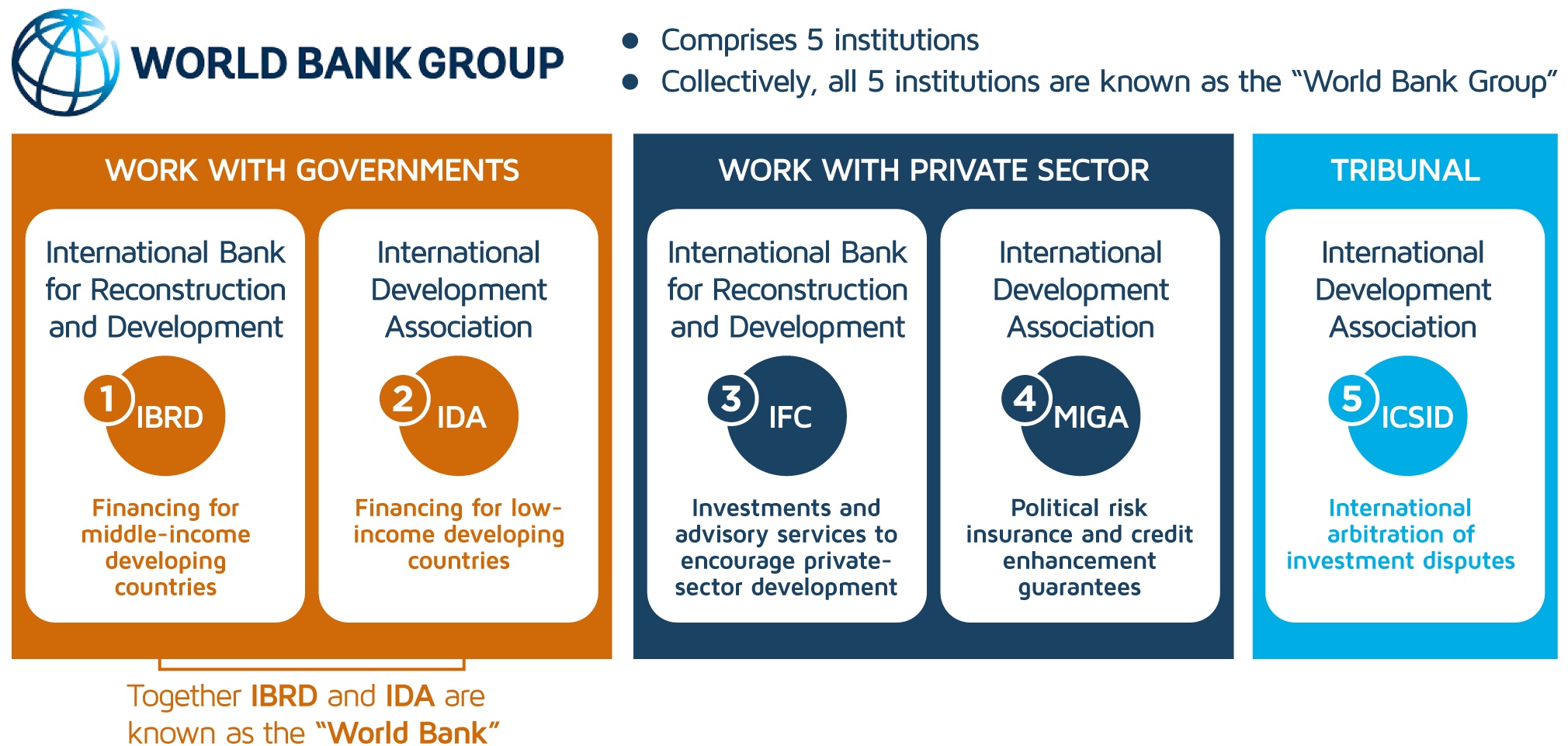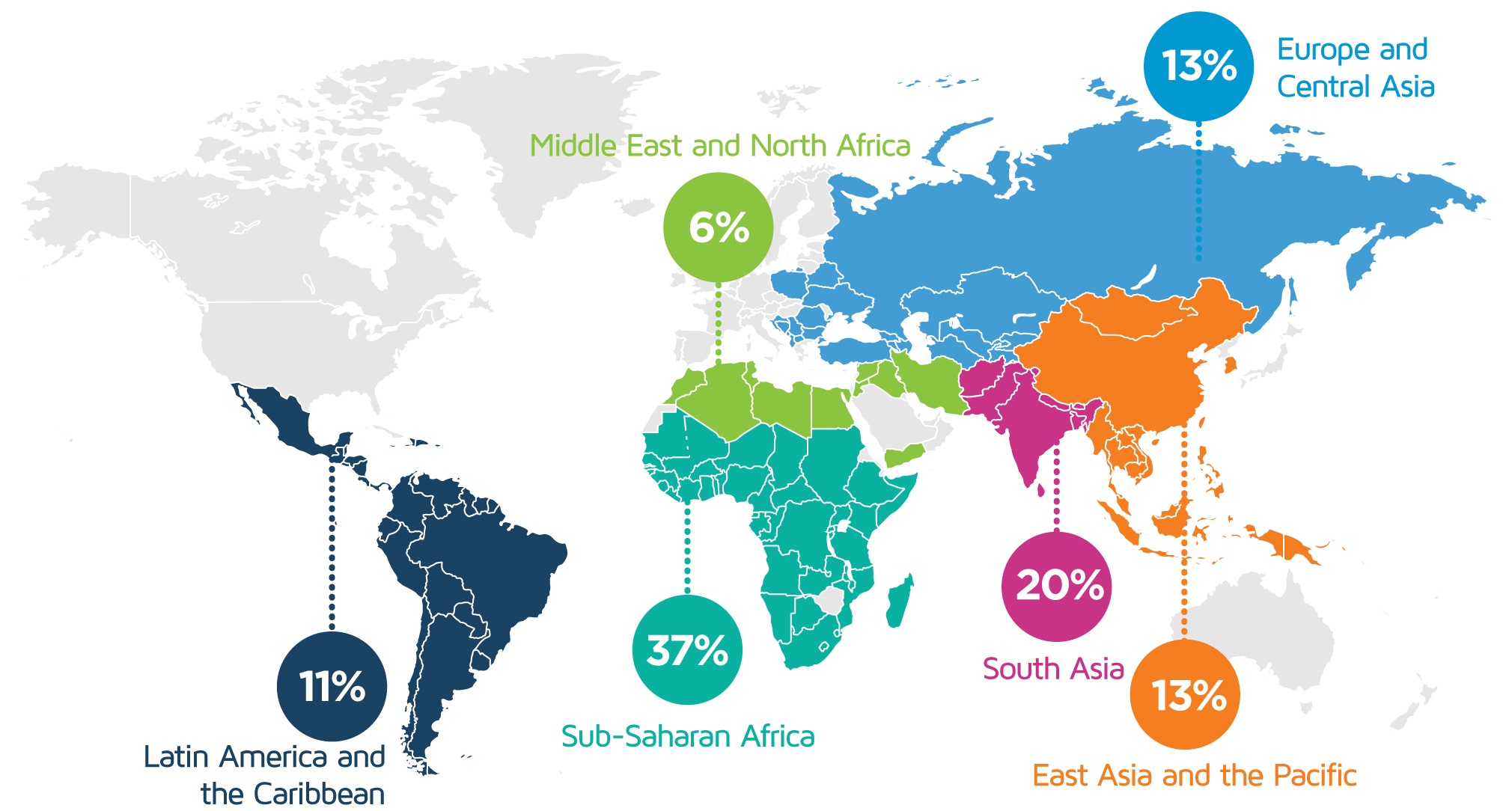Overview
The World Bank (WB) is the world’s largest multilateral institution with 189 member countries and over 130 offices. The Bank works in every major area of development by providing a wide array of financial products and technical assistance to its member and partner countries with the main objective being to develop sustainable solutions to reduce poverty and promote prosperity around the globe.
Since its first-ever loan was awarded in 1947 to France, the World Bank has funded over 12,000 development projects via traditional loans, interest-free credit, and grants. Some of the WB projects are co-financed with governments, other multilateral institutions, commercial banks, export credit agencies, and private sector investors. In 2020, the Bank, together with its partner institutions, delivered record levels of financing at an unprecedented pace which amounted to US$98.8 billion.
In response to the increasing interest from the development sector’s community towards the WB’s operations, DevelopmentAid invited Nancy Bikondo-Omosa, the Bank’s Senior Procurement Specialist, to discuss the World Bank’s procurement framework and discover the best practices for collaboration.
World Bank Group structure
The World Bank Group is comprised of five institutions that share a commitment to reducing poverty, increasing shared prosperity, and promoting sustainable development. The International Bank for Reconstruction and Development (IRBD) and the International Development Association (IDA) are known as the World Bank. The International Finance Corporation (IFC) and Multilateral Investment Guarantee Agency (MIGA) primarily work with the private sector by offering investment, advisory, and credit enhancement guarantee services while the International Centre for Settlement of Investment Disputes (ICSID) is an arbitration institution devoted to the settlement of investment disputes.
Fig.1. The World Bank Group operating model

In terms of procurement operations, in 2021 the World Bank has spent US$17.1 billion financing 1,764 projects in 144 countries.
The majority of these projects were in the Water, Sanitation, and Waste Management sector (32%), followed by projects in the Transport (21%), Energy & Extractives (17%), and Health (12%) sectors. It is also important to note that the Bank’s total commitments for FY21 reached US$221 billion, out of which 37% was concentrated in sub-Saharan Africa, followed by South Asia with 20%, Europe and Central Asia and East Asia, and the Pacific with 13% each of the total commitments.
Fig.2. World Bank’s global commitments by region

The World Bank offers two types of procurement opportunities: (1) Operations Procurement which involves procurements through the Bank’s lending portfolio, meaning that the contracts are managed by the borrowers (e.g., contracting agencies), and (2) Corporate Procurement which involves the sourcing of goods, services, construction and consulting services by the World Bank for its headquarters and offices around the world.
All WB procurement activities are guided by the following core principles:
- Value for money
- Economy
- Integrity
- Fit-for-Purpose
- Efficiency
- Transparency
- Fairness
When referring to proposal preparation, Nancy advised participants to attend the pre-proposal briefings, when possible, to learn more about the projects and related details. Next, she mentioned that bidders must fully address all the requirements highlighted in the project and present specific methodologies for delivery. It is important to recruit strong project managers, experts with a solid background and to involve in-country partners where possible. Last but not least, parties are encouraged to strive to submit professional proposals that are comprehensive, timely, and complete.
For those who did not have the opportunity to join us for this online event, a link to the recorded version can be found here. The presentation materials used during this webinar can be requested at i.ilasco@developmentaid.org.
We invite you to join us for our next webinar on “Rise or fall? DevelopmentAid’s projections on the evolution of Official Development Assistance” which will take place on December 2, 2021. Our speakers, Sergiu Casu and Mircea Chiriac will delve into ODA statistics and trends and will reflect on the effects of these numbers on the evolution of international development. You will also learn about DevelopmentAid’s research unit, its mission, and its internal capabilities.
